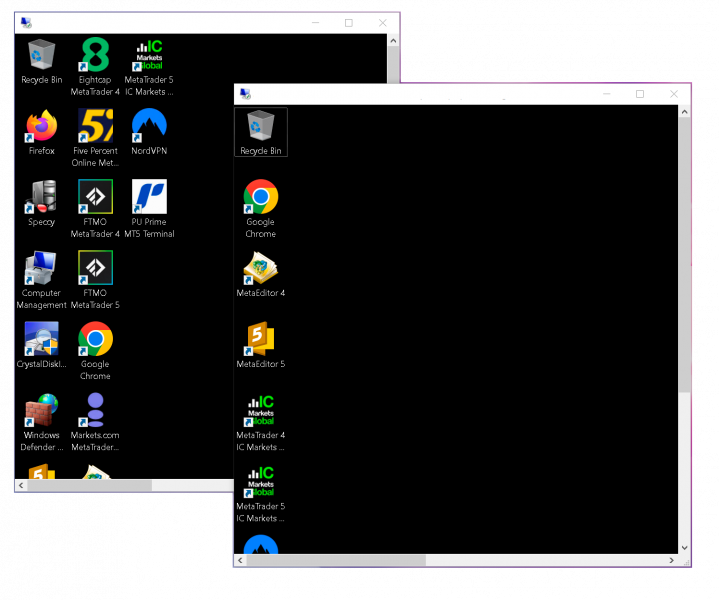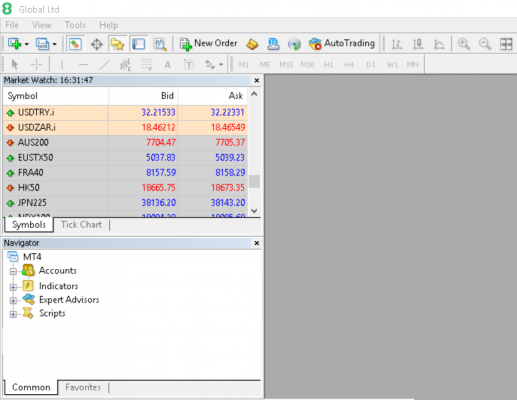How to Set Up a Low-Latency MT5 Server for Algorithmic Trading: Step-by-Step Guide

Ready to Upgrade Your Trading?
Explore WinServers.NET MT5 VPS Hosting Plans — engineered for speed, reliability, and security.
Why Low Latency Matters for Algorithmic Trading
In algorithmic trading, milliseconds can mean the difference between profit and loss. A low-latency MT5 server ensures your trading bots execute orders faster than competitors, minimize slippage, and capitalize on fleeting market opportunities. This guide will walk you through optimizing every layer of your MT5 server setup for speed, reliability, and security.
Step 1: Choose a High-Performance Hosting Provider
Not all hosting solutions are built for algo trading. Prioritize providers like WinServers that specialize in:
-
Dedicated Resources:Avoid shared hosting—opt for bare-metal servers or enterprise-grade VPS.
-
Proximity to Liquidity Pools:Host near exchanges (e.g., London, New York, or Tokyo data centers).
-
Guaranteed Uptime:Look for 99.99% SLA and DDoS protection.
Pro Tip: For MT5, a minimum of 4GB RAM and an SSD with 50GB+ storage is recommended.
Step 2: Optimize Server Location
Latency is geography-dependent. Use tools like CloudPing to test ping times between your broker’s server and potential hosting locations.
-
Forex/CFD Traders: Choose servers close to your broker’s primary data center (often London or Frankfurt).
-
Crypto Traders: Target regions like Singapore or Ohio/US-East hubs.
Step 3: Configure Your OS for Speed
For Windows Server (Recommended for MT5):
-
✅ Disable background apps & services (e.g., Windows Update, Cortana).
-
✅ Set power plan to “High Performance” to prevent CPU throttling.
-
✅ Prioritize MT5’s process in Task Manager > Details > Set Priority to “High”.
For Linux (Advanced Users):
Use a lightweight distro like Alpine Linux and optimize kernel parameters for TCP/IP:
sysctl -w net.core.rmem_max=16777216
sysctl -w net.core.wmem_max=16777216 Step 4: Install & Configure MT5 Server Software
-
Download the latest MT5 server build from MetaQuotes’ official site.
-
Run the installer and select “Low-Latency Mode” during setup.
-
Critical Configurations:
-
Server.ini: Set
OptimizeForSpeed=trueandMaxThreads=8(adjust based on CPU cores). -
Router.ini: Enable
UseFIXProtocol=1for direct market access (DMA).
Step 5: Network Tuning
-
TCP/IP Optimization:Reduce MTU size to 1460 for fewer packet retransmissions.
-
QoS Settings:Prioritize MT5 traffic on your router/firewall (Port 443 for FIX API).
-
VPN Alternatives:Use a private leased line or MPLS instead of standard VPNs.
Step 6: Security Hardening
-
Firewall Rules:Allow only inbound traffic from your broker’s IP range.
-
Encryption:Enable TLS 1.3 for client-server communication.
-
Multi-Factor Authentication (MFA):Secure your MT5 Manager Panel with Google Authenticator.
Step 7: Test & Benchmark Latency
-
Use PingPlotter or Wireshark to measure round-trip time (RTT) to your broker.
-
Run a demo EA with high-frequency orders to test execution under load.
-
Ideal latency: <10ms for forex, <50ms for crypto.
Step 8: Ongoing Monitoring
Deploy tools like:
-
Nagios: Track server health (CPU, RAM, disk I/O).
-
MT5 Manager Alerts: Configure SMS/email notifications for order queue overloads.
FAQ

Q: Can I use a shared hosting plan for MT5 algorithmic trading?
A: No—shared resources introduce unpredictable latency spikes. Dedicated hosting is mandatory.
Q: How often should I update my MT5 server?
A: Schedule updates during non-trading hours, and always test new builds on a staging server first.
Q: Does WinServers offer pre-optimized MT5 hosting?
A: Yes! Our MT5 Hosting Plans include low-latency network setups, DDoS protection, and 24/7 support.
Final Checklist
-
☑️ Dedicated server with SSD storage.
-
☑️ OS and MT5 software optimized for speed.
-
☑️ Network latency tested and validated.
-
☑️ Security protocols enforced.
Ready to Deploy?
For traders who demand zero compromises, explore WinServers.NET MT5 Algorithmic Trading Hosting — engineered for hedge funds and HFT systems.
or
Prices for Powerfull Windows VPS for MT5

VIRTUAL-10
€ 14 monthly rental price
CPU Intel 2 cores
up to 5 Ghz cores speed
10 Gb RAM
120 Gb SSD disk
Full system admin support
Traffic 20Tb
up to 5 Ghz cores speed
10 Gb RAM
120 Gb SSD disk
Full system admin support
Traffic 20Tb

VIRTUAL-15
€ 18 monthly rental price
CPU Intel 4 cores
up to 5 Ghz cores speed
15 Gb RAM
160 Gb SSD disk
Full system admin support
Traffic 20Tb
up to 5 Ghz cores speed
15 Gb RAM
160 Gb SSD disk
Full system admin support
Traffic 20Tb

VIRTUAL-20
€ 23 monthly rental price
CPU Intel 6 cores
up to 5 Ghz cores speed
20 Gb RAM
180 Gb SSD disk
Full system admin support
Traffic 20Tb
up to 5 Ghz cores speed
20 Gb RAM
180 Gb SSD disk
Full system admin support
Traffic 20Tb
- Start work about 20-30 minutes after payment!
- Windows 2016 or 2019 pre-installed
- Windows 2016 or 2019 pre-installed